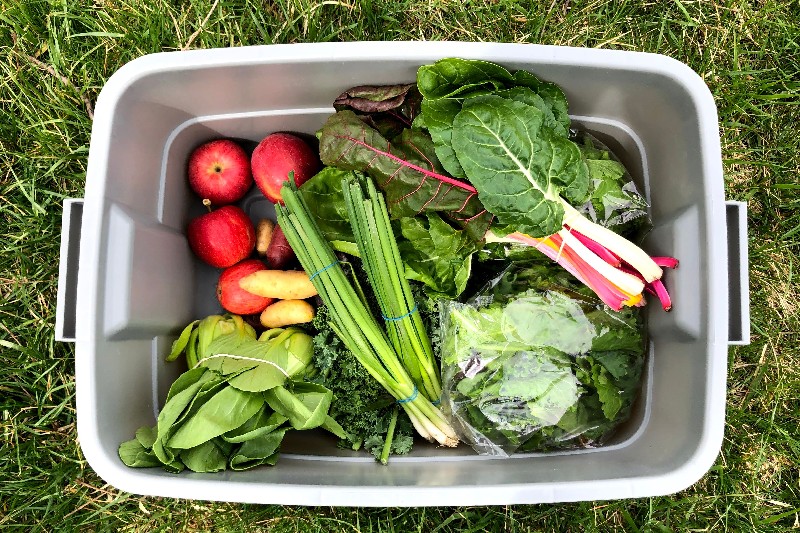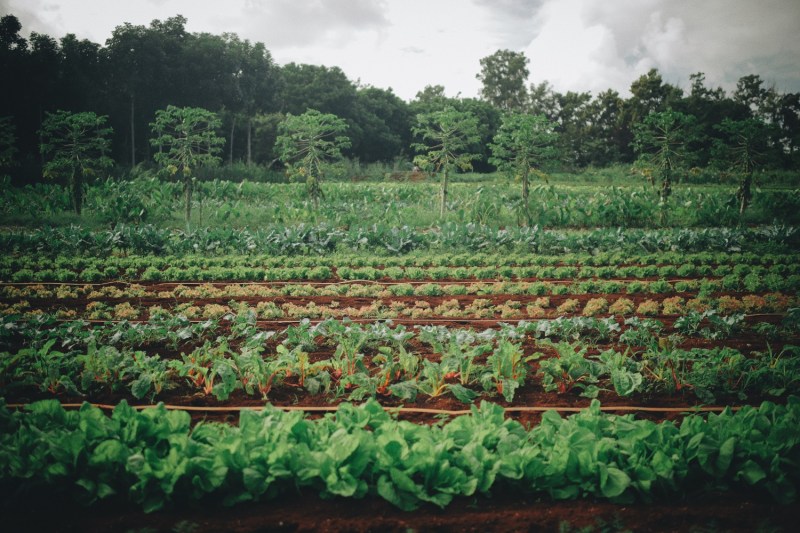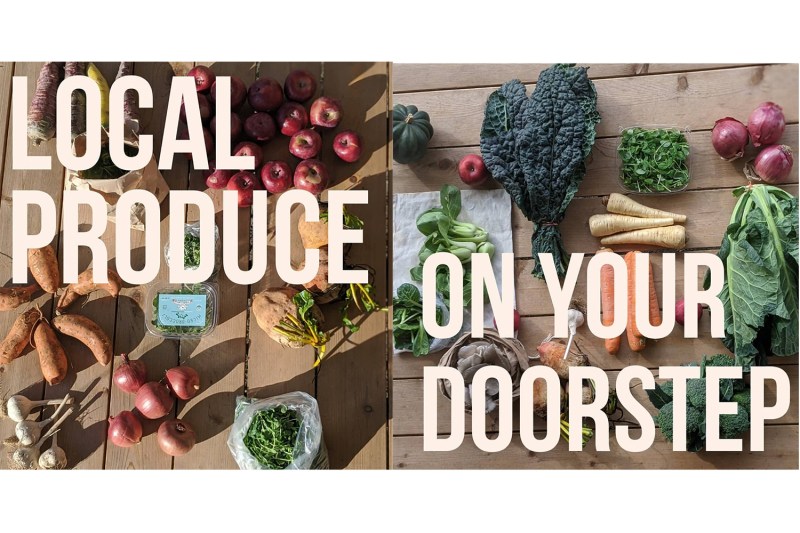When you sit down to eat that fresh salad you made, how often do you think about how the ingredients got to your plate? If the answer is “not very,” it’s OK because most people would have the same response.
The fact is, the food distribution system is very centralized — especially for produce. That’s why there isn’t a ton of variation in produce from supermarket to supermarket, whether you’re shopping in Detroit or Dallas. It’s also why small farmers are relegated to farmers’ markets, large institutions like schools, or local bodegas to sell their goods. Shouldn’t there be an easier way for people to have access to fresh local produce?
Related Guides
Meet Chening Duker, Founder of Goodpluck

Chening Duker is originally from Ghana and Cameroon in West Africa. After making his way to London, Duker enrolled in the University of Michigan to study tech. He went on to work for companies like Google and Duo Security. Combine his experience in managing complex systems and his love for food, you get his vision for helping small farmers distribute their food more efficiently.
“The end goal is for food to stop being so centralized and coming from a handful of massive companies. I want to challenge that by creating a viable and sustainable food distribution system, and that’s all happening in Detroit.”
Duker’s model is inspired by community-supported agriculture markets (CSA), and his community of choice is Detroit.
What is a CSA Market?

In a traditional CSA model, CSA members will buy shares of (or pay in advance for) a farm’s crop. By doing so, the shares cover the cost of planting. During harvest, the contributors to the CSA get weekly assortments of the freshest produce grown by the member farms.
The CSA model inspired Goodpluck “direct-to-community” farmers’ market. The big difference is, unlike a CSA, Goodpluck members don’t have to pay shares upfront. Goodpluck is free to join and customers log in once a week to edit their produce baskets. Duker has done all the heavy lifting of making sure participating Goodpluck farmers get paid fair rates for their produce.
How Does Goodpluck Work?

In the Goodpluck model, Duker has expanded the range of fresh produce and the number of farmers who can participate. The only criteria for the farmers are that they have to use no spray pesticides and practice organic and sustainable, non-GMO farming methods. Duker has found that he hasn’t had to micro-manage farmers much at all in this area since most small farmers already use these methods. To keep it local, all farms, regardless of size, are within two hours of Detroit.
Goodpluck members have the option of a pre-selected weekly or bi-weekly basket, or they can customize their basket with other in-season fruits and vegetables. Starter baskets start at just $35 for 10-12 items of the best local produce. Right now, some of the featured produce includes shiso, walla-walla onions, strawberries, pea shoots, and the first asparagus of the season. Customers can add as much produce as they want for a flat, per-unit fee. Their basket is then delivered directly to their door every Saturday. The fruits and veggies are sent in a large bin, wrapped in compostable and biodegradable bags. The customer keeps the container until the following order, where the bins are swapped out.
“Our target market is a home chef who wants to cook with really fresh, delicious local and sustainable ingredients.”
The bottom line is that fresh from the earth, in-season produce not only tastes much better than produce that has been stored and shipped across the country. Another benefit of buying local, organic produce is that it stays fresher much longer. This allows for the Goodpluck weekly or bi-weekly delivery model to be even more successful.
How Goodpluck is Giving Back

The first and most apparent way GoodPluck is giving back is that it’s helping the Detroit community. It’s helping the farmers sell their produce, and it’s helping the members of the community.
It’s true Detroit has seen significant revitalization over the past 10 years. Still, many areas are impoverished and don’t have reasonable access to fresh produce — locally grown or otherwise. Goodpluck allows anyone to join for free and have affordable (starting at $35 per basket) local produce sent right to their door. It provides the same delicious fruits and veggies to the people in the poor part of town as those in wealthy areas.
It’s easy for people in the surrounding suburbs (and the rest of the nation) to think that there is no sense of community in Detroit. But, in fact, that is the exact opposite. The Detroit community has had to remain strong to survive years of strife resulting from racism, political corruption, income inequality, bankruptcy, city tax hikes, and a litany of other issues.
This Black-owned business gives the community a chance to come together for more positive reasons, like celebrating delicious food for all grown by your neighbors.
How You Can Support

If you’re a Detroiter, the best way to support is to utilize Goodpluck’s service. However, if you’re anywhere else, the best way to support Goodpluck’s vision is to help your community farmers by joining a CSA group or by buying local produce wherever available. The more awareness that is built across the country to support small farms, the more products they can sell. The more people see that small farms can prosper, the more they will start their own farms, making fresh, local produce more widely available.
Hopefully, as the Goodpluck model expands and succeeds, others who share Duker’s vision can implement the same models in their communities. From there, partnerships and networks can form. Then eventually, no one will ever have to eat a tomato that tastes like cardboard ever again.
“The comparison is Etsy to Amazon. We don’t want to be the Amazon of food. I want to be very targeted towards the most delicious, best in-season food.”



